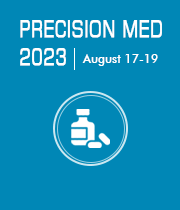Precision Medicine in Cancer diagnosis and treatment
Every year, cancer takes the lives of hundreds of thousands of individuals. Standard treatments, such as chemotherapy or radiation, are only effective in a small percentage of patients because of disease heterogeneity. With the introduction of precision medical tools, research, and treatments, the diagnosis and treatment of diseases such as cancer is becoming more precise and specialized. Precision medicine is a concept used to characterize the most recent efforts to enhance diagnosis, treatment, and outcomes for individuals and subgroups by examining and analyzing genomic data. The risk of developing specific diseases or cancers, their potential severity, one's ability to fight them, and the likelihood of positive or negative reactions to medications, radiation, or other therapies are all determined by a person's genetic makeup. Major advancements in genetic and biomarker testing, as well as pharmacogenetics, will assist to avoid toxic, inefficient, and ineffective research, resulting in more precise and effective pharmaceuticals and therapies at all levels.
- Genomic Sequencing Technologies
- Tumour Sequencing
- Drugs for Inhibiting Driver Mutations
- Progression of Precision Medicine
- Transcriptomic, Proteomic, and Metabolomic Techniques
- Cancer Vaccines

Bernd Blobel
University of Regensburg, Germany
Roy Gary Beran
University of New South Wales, Australia
Matthias Schwab
University of Tubingen, Germany
Thomas Webster
Interstellar Therapeutics, United States
Boris Tankhilevich
Magtera, Inc., United States
Isabella Friis Jorgensen
University of Copenhagen, Denmark


Title : The use of anti seizure medication therapeutic blood level determination to personalise the treatment of epileptic seizures especially in patients attending the accident and emergency department
Roy Gary Beran, University of New South Wales, Australia
Title : Personalized and precision medicine (PPM) can be established as a unique healthcare model through biodesign-driven and inspired biotech, translational applications. This approach aims to ensure human healthcare, wellness, and biosafety.
Sergey Suchkov, Institute for Biotech & Global Health of RosBioTech and A.I. Evdokimov MGMSU, Russian Federation
Title : Monitoring folds localization in ultra-thin transition metal dichalcogenides using optical harmonic generation
Ahmed Raza Khan, Australian National University, Australia
Title : A systematic review of regulatory approaches for Direct- To- Consumers (DTC) genetic testing
Kavitha Palaniappan, Duke-NUS Medical School, Singapore
Title : Regulatory framework of in vitro diagnostic and artificial intelligence for precision medicine
Pei Ting Sarah Chou, Regulatory Affairs Professionals Society, Taiwan
Title : Unraveling cancer stem cell signatures in circulating tumor cells of metastatic colorectal cancer: Investigating ALDH1A1 and the repurposing potential of disulfiram via scRNA-seq
Nurul Syakima Ab Mutalib, Universiti Kebangsaan Malaysia, Malaysia